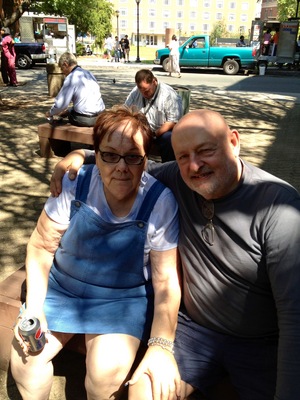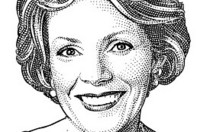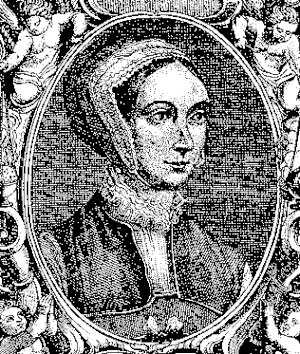August 2012 Archives
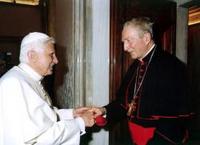 Having heard with sadness the news of the death of Cardinal Carlo Maria Martini after a long illness, which he lived with a tranquil soul and with confident abandonment to the will of the Lord, I wish to express to you and to the entire diocesan community, as well as to the family of the late Cardinal, my profound share in their sorrow, recalling with affection this dear brother who served the Gospel and the Church so generously. I recall with gratitude the intense and profuse Apostolic work of this zealous, spiritual child of St. Ignatius, an expert teacher, an authoritative biblical scholar, and a beloved Rector of the Pontifical Gregorian University and of the Pontifical Biblical Institute, and a wise and diligent Archbishop of the Ambrosian Archdiocese. I think also of the competent and fervent service he gave to the Word of God, always opening to the ecclesial community the treasures of the Sacred Scriptures, especially through the promotion of Lectio Divina. I raise fervent prayers to the Lord that, through the intercession of the Blessed Virgin Mary, He will receive His faithful servant and worthy shepherd into the heavenly Jerusalem; and upon all those who mourn his death, I warmly impart the comfort of the Apostolic Blessing.
Having heard with sadness the news of the death of Cardinal Carlo Maria Martini after a long illness, which he lived with a tranquil soul and with confident abandonment to the will of the Lord, I wish to express to you and to the entire diocesan community, as well as to the family of the late Cardinal, my profound share in their sorrow, recalling with affection this dear brother who served the Gospel and the Church so generously. I recall with gratitude the intense and profuse Apostolic work of this zealous, spiritual child of St. Ignatius, an expert teacher, an authoritative biblical scholar, and a beloved Rector of the Pontifical Gregorian University and of the Pontifical Biblical Institute, and a wise and diligent Archbishop of the Ambrosian Archdiocese. I think also of the competent and fervent service he gave to the Word of God, always opening to the ecclesial community the treasures of the Sacred Scriptures, especially through the promotion of Lectio Divina. I raise fervent prayers to the Lord that, through the intercession of the Blessed Virgin Mary, He will receive His faithful servant and worthy shepherd into the heavenly Jerusalem; and upon all those who mourn his death, I warmly impart the comfort of the Apostolic Blessing.
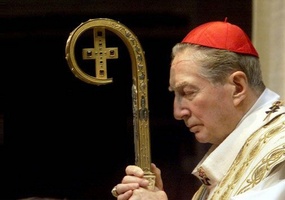 The famed Jesuit Cardinal Carlo Maria Martini, 85, died today following a long battle with Parkinson's disease. He had been living at a Jesuit retirement home near Milan.
The famed Jesuit Cardinal Carlo Maria Martini, 85, died today following a long battle with Parkinson's disease. He had been living at a Jesuit retirement home near Milan.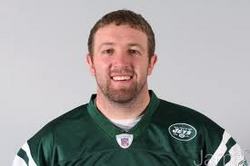
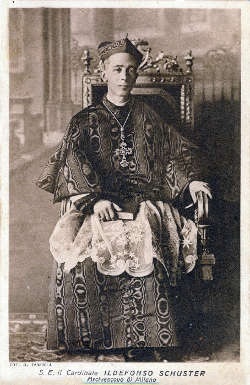
In view of the swan episode that I experienced a few weeks ago St Louis Abbey with their swan walking the street, I thought you'd want to know that Abelard the Abbey swan was found dead yesterday morning by the maintenance staff of the Priory School (St Louis Abbey). My friend Father Ambrose wrote me about this event. They think he was probably killed by coyotes or maybe by a big dog.
Whether you have a liking for birds, I am sorry about this. Abelard was a beautiful animal. He was already 18 years old; in captivity, swans can live into their twenties. So he was already old by swan standards; and I think his mind was going. In fact, after I left, he wandered off several more times and had to be brought back. I think he had the swan version of Alzheimer's. Also, several of the monks think he missed Father Michael (who used to take care of him and give him bread scraps, etc.). So he was old and debilitated, and in the natural order of things, another species brought about his demise.
Now the Priory has all those odious Canada geese.
Abeland died on my friend's priestly
ordination anniversary, the feast of St. Augustine. Abelard came to live with the
monks as a gift from Father Bernard, back in 1998.
You may want to see Father Augustine's update on the Juniors at St Louis Abbey!!!
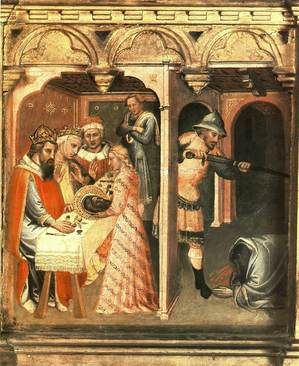 O God, who willed that Saint John the Baptist should
go ahead of your Son both in his birth and in his death, grant that, as he died
a Martyr for truth and justice, we, too, may fight hard for the confession of
what you teach.
O God, who willed that Saint John the Baptist should
go ahead of your Son both in his birth and in his death, grant that, as he died
a Martyr for truth and justice, we, too, may fight hard for the confession of
what you teach.
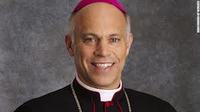 You know Salvatore Cordileone's name --he's the new archbishop of San Francsico. A high profile appointment made several weeks ago by Pope Benedict XVI. He was arrested for a DUI charge on August 25. He's admitted wrong-doing, spent 11 hours in jail, paid the bail and is due in court on October 9, just 5 days following his scheduled installation in SF.
You know Salvatore Cordileone's name --he's the new archbishop of San Francsico. A high profile appointment made several weeks ago by Pope Benedict XVI. He was arrested for a DUI charge on August 25. He's admitted wrong-doing, spent 11 hours in jail, paid the bail and is due in court on October 9, just 5 days following his scheduled installation in SF.
LET me speak of another celebrated conquest of God's grace in an after age, and you will see how it pleases Him to make a Confessor, a Saint, Doctor of His Church, out of sin and heresy both together. It was not enough that the Father of the Western Schools, the author of a thousand works, the triumphant controversialist, the especial champion of grace, should have been once a poor slave of the flesh, but he was the victim of a perverted intellect also. He who, of all others, was to extol the grace of God, was left more than others to experience the helplessness of nature. The great St Augustine (I am not speaking of the holy missionary of the same name, who came to England and converted our pagan forefathers, and became the first Archbishop of Canterbury, but of the great African Bishop, two centuries before him)--Augustine, I say, not being in earnest about his soul, not asking himself the question, how was sin to be washed away, but rather being desirous, while youth and strength lasted, to enjoy the flesh and the world, ambitious and sensual, judged of truth and falsehood by his private judgment and his private fancy; despised the Catholic Church because it spoke so much of faith and subjection, thought to make his own reason the measure of all things, and accordingly joined a far-spread sect, which affected to be philosophical and enlightened, to take large views of things, and to correct the vulgar, that is, the Catholic notions of God and Christ, of sin, and of the way to heaven. In this sect of his he remained for some years; yet what he was taught there did not satisfy him. It pleased him for a time, and then he found he had been eating for food what had no nourishment in it; he became hungry and thirsty after something more substantial, he knew not what; he despised himself for being a slave to the flesh, and he found his religion did not help him to overcome it; thus he understood that he had not gained the truth, and he cried out, "Oh, who will tell me where to seek it, and who will bring me into it?"
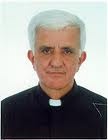
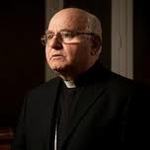
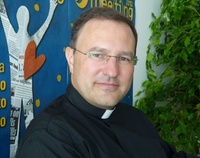 We continually need to get to the heart of who our influences are as people. That is true of Father Luigi Giussani who is being spoken of not only as the founder of the ecclesial movement of Communion and Liberation but also because his cause for canonization is now being studied. Father Ignacio Carbajosa Pérez, 45, said of Father Luigi
Giussani, "For me the most striking thing was to hear this man with this love
for my humanity, finally, to find someone who knew very well what is my
humanity and then looked upon it in a sympathetic way." (Read more of what Father Ignacio told David Kerr here at The Rimini Meeting 2012.)
We continually need to get to the heart of who our influences are as people. That is true of Father Luigi Giussani who is being spoken of not only as the founder of the ecclesial movement of Communion and Liberation but also because his cause for canonization is now being studied. Father Ignacio Carbajosa Pérez, 45, said of Father Luigi
Giussani, "For me the most striking thing was to hear this man with this love
for my humanity, finally, to find someone who knew very well what is my
humanity and then looked upon it in a sympathetic way." (Read more of what Father Ignacio told David Kerr here at The Rimini Meeting 2012.)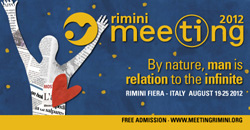 THE most significant cultural and religious meeting in the world is held in the late August: "Rimini Meeting" in the seaside town of Rimini (Italy). From 19-25 August, The Meeting coordinated by members of Communion and Liberation attracts numerous speakers and more than 800K.
THE most significant cultural and religious meeting in the world is held in the late August: "Rimini Meeting" in the seaside town of Rimini (Italy). From 19-25 August, The Meeting coordinated by members of Communion and Liberation attracts numerous speakers and more than 800K.The Holy Father, Pope Benedict closely follows The Meeting. He was in attendance several years ago, as was John Paul II in 1982. Picking up from Father Luigi Giussani's thinking of "life as a vocation", the Pope reminds us that everything is answered in relationship to the Infinite. On July 11, 2012 I posted a piece called "The Vocation to Life" which is essential reading if you want to know more of what the Pope, Giussani and Christianity is all about.
The Pope's letter for the 2012 Meeting follows (emphasis mine).
To the Venerable Brother Monsignor Francesco Lambiasi,
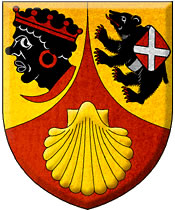
I wish to extend my cordial greetings to you, to the organizers and to all the participants in the Meeting for Friendship among Peoples, now in its XXXIII year. The theme chosen this year - "The nature of man is a relationship with the infinite" - is particularly significant in view of the approaching start of the Year of Faith, which I have willed to proclaim to mark the 50th anniversary of the opening of the Second Vatican Ecumenical Council.
To speak of man and of his yearning for the infinite means, first and foremost, to recognize his constitutive relationship with the Creator. Man is a creature of God. Today this word - creature - seems almost passé: we prefer to think of man as a self-fulfilled being and master of his own destiny. The consideration of man as a creature seems "uncomfortable," because it implies an essential reference to something else, or better, to Someone else - whom man cannot control - who enters in order to define his identity in an essential way; a relational identity, whose first element is the original and ontological dependence on He who wanted us and created us. Yet this dependence, from which modern and contemporary man attempts to break free, not only does not hide or diminish, but luminously reveals the greatness and supreme dignity of man, who is called into life in order to enter into relationship with Life itself, with God.
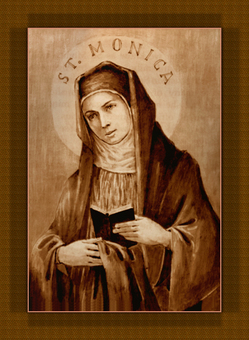 Everyone ought to have a "Saint Monica" figure in their lives. The sainted mother of Saint Augustine is the patron of spiritual maternity. Even though Monica was the biological mother of Augustine, she worked hard in the spiritual realm to get her son to give himself to Christ and his plan rather than his own plan of self-destructive behavior. Her constant prayer, fasting and good works all contributed to Augustine's conversion. The collect for today's Mass speaks volumes.
Everyone ought to have a "Saint Monica" figure in their lives. The sainted mother of Saint Augustine is the patron of spiritual maternity. Even though Monica was the biological mother of Augustine, she worked hard in the spiritual realm to get her son to give himself to Christ and his plan rather than his own plan of self-destructive behavior. Her constant prayer, fasting and good works all contributed to Augustine's conversion. The collect for today's Mass speaks volumes.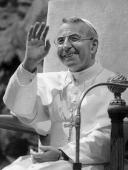 Today is the 34th anniversary of papal election of Albino Luciani as Pope John Paul I. He's remembered for being the smiling pope and the pope who reigned for 33 days. In some way, Divine Providence gave us this gift and then opened the door for yet another. John Paul's cause for canonization is being studied.
Today is the 34th anniversary of papal election of Albino Luciani as Pope John Paul I. He's remembered for being the smiling pope and the pope who reigned for 33 days. In some way, Divine Providence gave us this gift and then opened the door for yet another. John Paul's cause for canonization is being studied.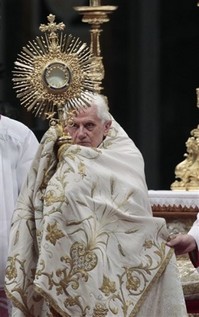
Among a certain crowd of priests, religious and laity you will hear that Adoration and Benediction of the Blessed Sacrament is no longer an appropriate method of prayer: "Vatican II changed all that..." or they'll say "That's ol'time religion." One priest even told me that Adoration of the Blessed Sacrament is cookie worship. Really? Giving praise to God is outdated? Adoration of the Holy Name is no longer in vogue? The God who created you is not worship and made known? None of this reflects my Catholic faith!
I am somewhat certain that those who claim Adoration and Benediction of the Blessed Sacrament neither know the Commandments (to worship God), the Tradition of the Church, the documents of the Second Vatican Council nor the post Conciliar work of Popes Paul, John Paul and Benedict. It is safe to say that these people who reject the the practice of a Holy Hour are the same who who haven't had a good formation in the faith or the Lex Orandi tradition.
Perhaps we all should recall what the Servant of God Pope Paul VI said in Mysterium Fidei,
The Catholic Church has always displayed and still displays this latria that ought to be paid to the Sacrament of the Eucharist, both during Mass and outside of it, by taking the greatest possible care of consecrated Hosts, by exposing them to the solemn veneration of the faithful, and by carrying them about in processions to the joy of great numbers of the people (56).
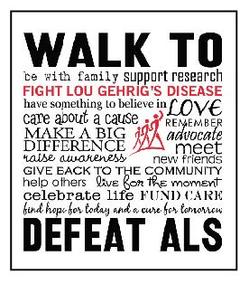 My friend Father David Bornio sent me this note asking to kindly to get the word out. If you live in the New Haven area, please consider walking to Defeat ALS.
My friend Father David Bornio sent me this note asking to kindly to get the word out. If you live in the New Haven area, please consider walking to Defeat ALS.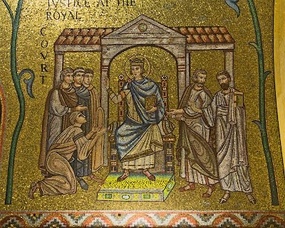 Saints come from all walks of life. We've got every group represented in the group of canonized. Today is the feast of a saint of a rare group --a king. The Church honors King Saint Louis IX.
Saints come from all walks of life. We've got every group represented in the group of canonized. Today is the feast of a saint of a rare group --a king. The Church honors King Saint Louis IX.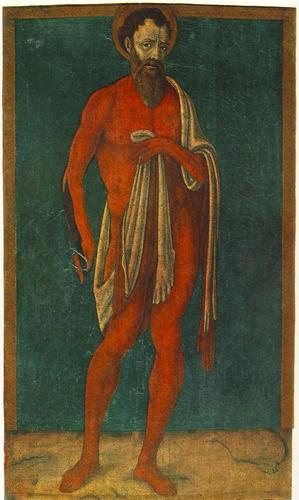
ST. BARTHOLOMEW, whose Festival we celebrate today, has been supposed to be the same as the Nathanael mentioned in the text. Nathanael was one of Christ's first converts, yet his name does not occur again till the last chapter of St. John's Gospel, where he is mentioned in company with certain of the Apostles, to whom Christ appeared after His resurrection. Now, why should the call of Nathanael have been recorded in the opening of the Gospel, among the acts of Christ in the beginning of His Ministry, unless he was an Apostle? Philip, Peter, and Andrew, who are mentioned at the same time, were all Apostles; and Nathanael's name is introduced without preface, as if familiar to a Christian reader. At the end of the Gospel it appears again, and there too among Apostles. Besides, the Apostles were the special witnesses of Christ, when He was risen. He manifested Himself, "not to all the people," says Peter, "but unto witnesses chosen before of God, even to us, who did eat and drink with Him after He rose from the dead." [Acts x. 41.] Now, the occasion on which Nathanael is mentioned, was one of these manifestations. "This is now the third time," says the Evangelist, "that Jesus was manifested to His disciples, after that He was risen from the dead." It was in the presence of Nathanael, that He gave St. Peter his commission, and foretold his martyrdom, and the prolonged life of St. John. All this leads us to conjecture that Nathanael is one of the Apostles under another name. Now, he is not Andrew, Peter, or Philip, for they are mentioned in connexion with him in the first chapter of the Gospel; nor Thomas, James, or John, in whose company he is found in the last chapter; nor Jude (as it would seem), because the name of Jude occurs in St. John's fourteenth chapter. Four Apostles remain, who are not named in his Gospel,--St. James the Less, St. Matthew, St. Simon, and St. Bartholomew; of whom St. Matthew's second name is known to have been Levi, while St. James, being related, was not at any time a stranger to our Lord, which Nathanael evidently was. If then Nathanael were an Apostle, he was either Simon or Bartholomew. Now it is observable, that, according to St. John, Philip brought Nathanael to Christ; therefore Nathanael and Philip were friends: while in the other Gospels, in the list of Apostles, Philip is associated with Bartholomew; "Simon and Andrew, James and John, Philip and Bartholomew." [Matt. x. 3.] This is some evidence that Bartholomew and not Simon is the Nathanael of St. John. On the other hand, Matthias has been suggested instead of either, his name meaning nearly the same as Nathanael in the original language. However, since writers of some date decide in favour of Bartholomew, I shall do the like in what follows.
What then do we learn from his recorded character and history? It affords us an instructive lesson.
When
Philip told him that he had found the long-expected Messiah of whom Moses
wrote, Nathanael (that is, Bartholomew) at first doubted. He was well read in
the Scriptures, and knew the Christ was to be born in Bethlehem; whereas Jesus
dwelt at Nazareth, which Nathanael supposed in consequence to be the place of
His birth,--and he knew of no particular promises attached to that city, which
was a place of evil report, and he thought no good could come out of it. Philip
told him to come and see; and he went to see, as a humble single-minded man,
sincerely desirous to get at the truth. In consequence, he was vouchsafed an
interview with our Saviour, and was converted.
Plain and Parochial Sermons, 27
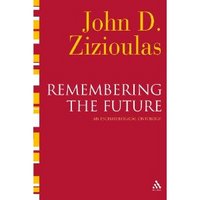 The predominating concept in theological ontology is
that of a protological ontology which defines being itself as being defined by
the past. The future of things in this perspective is defined by its origins
and the "given" or the "factum". In this major new book
John Zizioulas shows that eschatology can have important implications for
ontology, i.e. for being itself. The world was created with a purpose and the
end which would be greater than the beginning. This is the view of the Fathers,
such as Irenaeus and Maximus, who made the end the "cause of all
being". The implications of such an idea are revolutionary, both
historically and experientially. It represents a reversal of the ancient
philosophical idea of causality as well as of our common sense rationality,
according to which the cause precedes chronologically as well as logically. It
is the opposite of protological ontology, which makes the past decisive for the
future. Eschatological ontology, therefore, is about the liberation of being
from necessity, it is about the formation of being. Man and the world are no
longer imprisoned in their past, in sin, decay and death. The past is
ontologically affirmed only in so far as it contributes to the end, to the
coming of the kingdom. The eschaton will 'judge' history with this criterion
alone. The last judgment as part of the eschaton represents an ontological, not
a moral event. Zizioulas shows how this eschatological ontology permeates
Christian doctrine, particularly that of creation and ecclesiology. He also
points out some of its ethical implications.
The predominating concept in theological ontology is
that of a protological ontology which defines being itself as being defined by
the past. The future of things in this perspective is defined by its origins
and the "given" or the "factum". In this major new book
John Zizioulas shows that eschatology can have important implications for
ontology, i.e. for being itself. The world was created with a purpose and the
end which would be greater than the beginning. This is the view of the Fathers,
such as Irenaeus and Maximus, who made the end the "cause of all
being". The implications of such an idea are revolutionary, both
historically and experientially. It represents a reversal of the ancient
philosophical idea of causality as well as of our common sense rationality,
according to which the cause precedes chronologically as well as logically. It
is the opposite of protological ontology, which makes the past decisive for the
future. Eschatological ontology, therefore, is about the liberation of being
from necessity, it is about the formation of being. Man and the world are no
longer imprisoned in their past, in sin, decay and death. The past is
ontologically affirmed only in so far as it contributes to the end, to the
coming of the kingdom. The eschaton will 'judge' history with this criterion
alone. The last judgment as part of the eschaton represents an ontological, not
a moral event. Zizioulas shows how this eschatological ontology permeates
Christian doctrine, particularly that of creation and ecclesiology. He also
points out some of its ethical implications.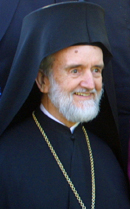
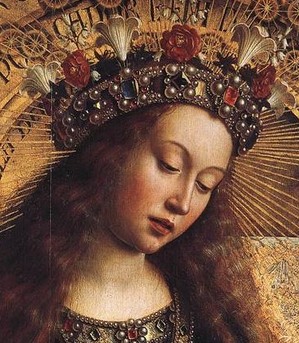
We, too, approach thee to-day, O Queen; and again, I say, O Queen, O Virgin Mother of God, staying our souls with our trust in thee, as with a strong anchor. Lifting up mind, soul and body, and all ourselves to thee, rejoicing in psalms and hymns and spiritual canticles, we reach through thee One who is beyond our reach on account of His Majesty. (Saint John of Damascus)
... devotion to Our Lady is an important element in our spiritual lives. In our prayer, let us not neglect to turn trustfully to her. Mary will not neglect to intercede for us next to her Son. In looking to her, let us imitate her faith, her complete availability to God's plan of love, her generous welcoming of Jesus. Let us learn to live by Mary. Mary is the Queen of heaven who is close to God, but she is also the Mother who is close to each one of us, who loves us and who listens to our voice.
Pope Benedict XVIQueenship of Mary, 2012
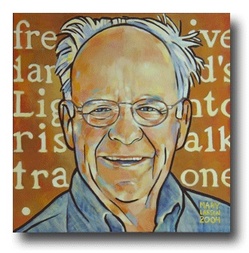 Today, Raymond Gerhardt Hunthausen, the emeritus archbishop of Seattle (1975-1991), celebrates his 91st birthday. He studied chemistry and later served as an assistant professor of Chemistry at Carroll College before becoming that school's president in 1957. In 1962, Blessed John XXIII appointed him as bishop of Helena and from there he attended all four sessions of the Second Vatican Council. at 40 years old, he was the youngest bishop at the beginning of the Council. In 1975, the Servant of God Paul VI appointed Bishop Hunthausen to the See of Seattle. Hence, he's been a priest for 66 years and a bishop for 50.
Today, Raymond Gerhardt Hunthausen, the emeritus archbishop of Seattle (1975-1991), celebrates his 91st birthday. He studied chemistry and later served as an assistant professor of Chemistry at Carroll College before becoming that school's president in 1957. In 1962, Blessed John XXIII appointed him as bishop of Helena and from there he attended all four sessions of the Second Vatican Council. at 40 years old, he was the youngest bishop at the beginning of the Council. In 1975, the Servant of God Paul VI appointed Bishop Hunthausen to the See of Seattle. Hence, he's been a priest for 66 years and a bishop for 50.-thumb-285x351-12511.jpg) An obscure Benedictine saint is liturgically honored by the Church today. Saint Bernard Tolomei, (1272-1348) the founder of the Benedictine Congregation of the Blessed Virgin of Monte Oliveto (near Siena) in 1319. He was beatified in 1644 but not canonized until 2009, though he was revered as a saint for a long time before Pope Benedict canonized him.
An obscure Benedictine saint is liturgically honored by the Church today. Saint Bernard Tolomei, (1272-1348) the founder of the Benedictine Congregation of the Blessed Virgin of Monte Oliveto (near Siena) in 1319. He was beatified in 1644 but not canonized until 2009, though he was revered as a saint for a long time before Pope Benedict canonized him.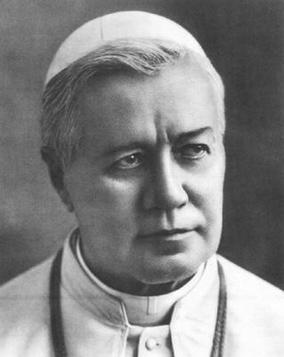 O God, who to safeguard the Catholic faith and to
restore all things in Christ, filled Pope Saint Pius the Tenth with heavenly
wisdom and apostolic fortitude, graciously grant that, following his teaching
and example, we may gain an eternal prize.
O God, who to safeguard the Catholic faith and to
restore all things in Christ, filled Pope Saint Pius the Tenth with heavenly
wisdom and apostolic fortitude, graciously grant that, following his teaching
and example, we may gain an eternal prize.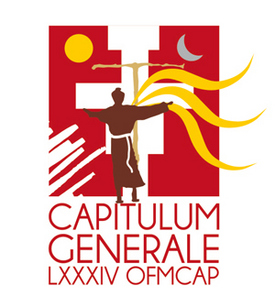 Beginning yesterday and for the next five weeks the Capuchin friars are engaged in their 84th General Chapter in Rome. The General
Minister, Friar Mauro Jöhri presides over the Capitulars from many nations. The Capuchins have set a wonderful multilingual website to cover the work of the Chapter, pictures included. Walk with the Capuchins in friendship and prayer for a good meeting guided by the Holy Spirit.
Beginning yesterday and for the next five weeks the Capuchin friars are engaged in their 84th General Chapter in Rome. The General
Minister, Friar Mauro Jöhri presides over the Capitulars from many nations. The Capuchins have set a wonderful multilingual website to cover the work of the Chapter, pictures included. Walk with the Capuchins in friendship and prayer for a good meeting guided by the Holy Spirit.During the homily Bishop Corriveau stated strongly that when his words did not penetrate the heart of his people the Prophet Ezechiel acted with deeds and dramatic actions in his own life. No one understood this way of acting better than Francis of Assisi "Preach the gospel at all times and when necessary use words". Quoting Blessed John Paul II, he said that the Church's prophetic response to the individualism of our day is communion: "to make the Church the home and school of communion: this is the great challenge which is laid before us in the millennium that has just begun. If we wish to be faithful to God's plan and respond to the deep expectations of the world"(NMI, 43). We have been created to live in communion, to be family. Bishop Corriveau also said, the call to Trinitarian communion, which for a Capuchin is a call to fraternity is much more than a slogan. It implies deep conversion of the heart, Only the heart which is fraternal and decidedly relation oriented can offer the secularised world a prophetic word. By way of conclusion he hoped that by keeping our gaze fixed on Christ we would be able to touch the hearts of the men and women of our day. May this Chapter discover once again the relational aspect of our Franciscan inheritance. In this way we will be able to assist the Church to give visible expression to a spirituality of communion. (Capuchin website for the Chapter)
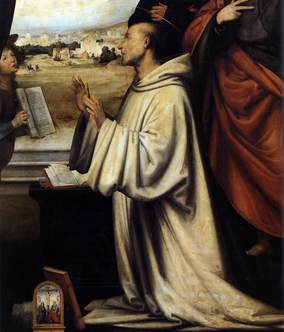
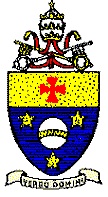 The Office of the Abbot Primate announces...
The Office of the Abbot Primate announces...Last weekend Nellie Gray, 88, the "Mother of the Pro-Life" movement in the USA died at her Washington, DC home. She was the voice of the marginal in the USA. The annual March for Life was founded by Nellie 39 years ago. She worked to shed light on the evil of abortion which has claimed 55 million lives. The Mass of Christian Burial was celebrated for the repose of Nellie Gray on the Solemnity of the Assumption.
Cardinal Sean Patrick O'Malley, OFM, Cap, said of Nellie Gray:
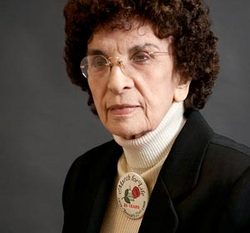
Having received news of Nellie Gray's death, I wish to express my sincere condolences and prayers for her family and for all who came to know and love her in the Pro-Life Movement. Her love for life and her dedication to protecting the unborn, the most vulnerable among us, have inspired countless generations of Catholics and non-Catholics alike, and we will miss her tremendously.
Nellie Gray will be remembered as the Joan of Arc of the Gospel of Life. The architects of the pro-abortion movement in the United States thought that the opposition would go away, but close to 40 years later the issue is still very much alive, thanks in part to the annual March for Life and because of people like Nellie who are committed to the culture of life. Having participated in every single March for Life since its inception, I have witnessed firsthand her advocacy and dedication. I was honored by her presence in Boston in 2009, when during the Boston Catholic Women's Conference we conferred upon her the Culture of Life Award.
Her death is a great loss for both our Church and our Country,
but her life has left a meaningful and lasting impression upon the hearts of
those who knew her and upon the many hearts of those whose lives she saved. We
will keep Nellie Gray and all those who mourn her death in our prayers. We ask
God to grant her eternal rest and peace, and we give thanks to Him for the gift
of her life.
Our Lady of Life, pray for Nellie Gray, and for us.
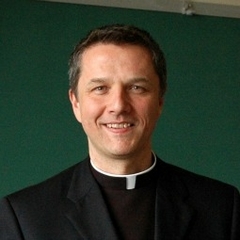 Salvation comes from the East! You've heard that before, no? If not, then it is news you ought to welcome, not just because an Eastern Catholic priest, Father Mark Morozowich is the new Dean of the School of Theology at the Catholic University of America.
Salvation comes from the East! You've heard that before, no? If not, then it is news you ought to welcome, not just because an Eastern Catholic priest, Father Mark Morozowich is the new Dean of the School of Theology at the Catholic University of America.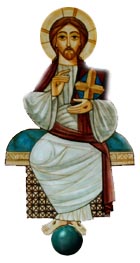 The Coptic and Ethiopic Churches face the elections of new popes in the coming weeks. Pope Shenouda III died in March 2012 after serving as pope of his Church for 40 years. Yesterday, the patriarch of the Ethiopic Church Abune Paulos died at the age of 76. Shenouda had health issues and Paolus apparently died of a heart attack (there's some controversy on the reason for the death).
The Coptic and Ethiopic Churches face the elections of new popes in the coming weeks. Pope Shenouda III died in March 2012 after serving as pope of his Church for 40 years. Yesterday, the patriarch of the Ethiopic Church Abune Paulos died at the age of 76. Shenouda had health issues and Paolus apparently died of a heart attack (there's some controversy on the reason for the death).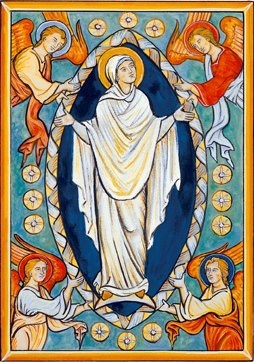 "those He justified, He also glorified" (Rom
8:30)
"those He justified, He also glorified" (Rom
8:30)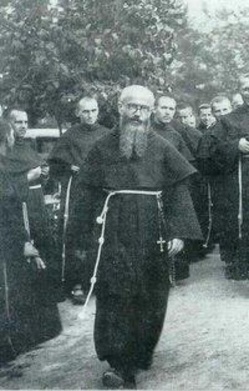 Come, you blessed of my Father, says the Lord. Amen I say to you: Whatever you did for one of the least of my brethren, you did it for me.
Come, you blessed of my Father, says the Lord. Amen I say to you: Whatever you did for one of the least of my brethren, you did it for me.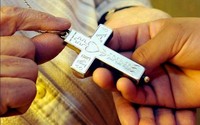
 News flash! A growing number of Benedictine monasteries are brewing beer in the USA and in Europe.
News flash! A growing number of Benedictine monasteries are brewing beer in the USA and in Europe.Originating in Babylonia and Mesopotamia, around the area of Georgia, about the year of 6,000 BC, beer was brewed. Fast forward several years and you'll find Benedictine monks perfecting the brewing beer. Rich in vitamin B, beer was seen as safer than drinking water and it had nutritional value, hence, liquid bread.
The monastic communities in Italy, Germany, the Czech Republic, Ireland, Austria, Belgium and the Netherlands among others have been busy with the brew.
Recently, monasteries have been starting up companies like Abbey Beverage Company (of the Abbey of Christ in the Desert) to meet a demand boutique beers. One can also point to the monasteries of Ampleforth (UK), La Cascinazza (Italy), Norcia (Italy), and Spencer (MA) as new brewers.
Drink up!
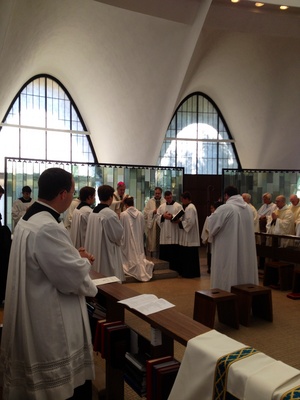 Today, The Most Reverend Robert J. Carlson, archbishop of Saint Louis, ordained two Benedictine monks of the Abbey of Saint Mary and Saint Louis to the Order of Deacon. Brothers Francis Hein and Cassian Koeneman received this sacrament of order at the request of Abbot Thomas Frerking. May God them many years of faithful service!
Today, The Most Reverend Robert J. Carlson, archbishop of Saint Louis, ordained two Benedictine monks of the Abbey of Saint Mary and Saint Louis to the Order of Deacon. Brothers Francis Hein and Cassian Koeneman received this sacrament of order at the request of Abbot Thomas Frerking. May God them many years of faithful service!
The archbishop ordained these men to the Order of Deacon and next year, Deo volente, he will ordain them to the Order of Priest.
Brother Francis has been at the Dominican House of Studies (Washington, DC) and Brother Cassian has been at Rome's Angelicum.
What does the Church teach about deacons? The Catechism answers:
Deacons share in Christ's mission and grace in a special way. The sacrament of Holy Orders marks them with an imprint ("character") which cannot be removed and which configures them to Christ, who made himself the "deacon" or servant of all. Among other tasks, it is the task of deacons to assist the bishop and priests in the celebration of the divine mysteries, above all the Eucharist, in the distribution of Holy Communion, in assisting at and blessing marriages, in the proclamation of the Gospel and preaching, in presiding over funerals, and in dedicating themselves to the various ministries of charity.
Since the Second Vatican Council the Latin Church has restored the diaconate "as a proper and permanent rank of the hierarchy," while the Churches of the East had always maintained it. This permanent diaconate, which can be conferred on married men, constitutes an important enrichment for the Church's mission. Indeed it is appropriate and useful that men who carry out a truly diaconal ministry in the Church, whether in its liturgical and pastoral life or whether in its social and charitable works, should "be strengthened by the imposition of hands which has come down from the apostles. They would be more closely bound to the altar and their ministry would be made more fruitful through the sacramental grace of the diaconate." (CCC 1570-71).
On the question of relating to our fellowman - our neighbor's spiritual need transcends every commandment. Everything else we do is a means to an end. But love is an end already, since God is love.
Saint Terese Benedicta of the Cross (Edith Stein)
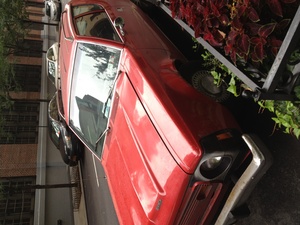 I've been walking past this AMC Gremlin for two years now. I am now taking a picture of it for the sake of culture, even if it's a wrong side up. This car resides as it were on East 68th Street in NYC.
I've been walking past this AMC Gremlin for two years now. I am now taking a picture of it for the sake of culture, even if it's a wrong side up. This car resides as it were on East 68th Street in NYC.When I was kid my mother had a silver AMC Gremlin car. It was an interesting looking car but I remember a dreadful driving experience.
According to the stats the AMC Gremlin was manufactured for 8 years (1970-78) and with a production total of 671K. You can more about this car's cultural relevance at the link above.
May it rest in peace.
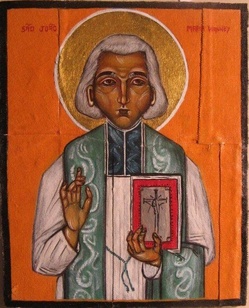
Almighty and merciful God, who made the Priest Saint John Vianney wonderful in his pastoral zeal, grant, we pray, that through his intercession and example we may in charity win brothers and sisters for Christ and attain with them eternal glory.
The August liturgical memorial for Saint John Marie Vianney, the patron of priests, is yet another reminder we ought to have in interceding on behalf of priests. God needs to hear from us n this subject...
May Saint John Vianney approach the Throne of Mercy for all priests.
A fantasy [that people have] property takes no account of the fact that, for the great majority of mankind, life is a struggle. On those grounds I would see this idea of choosing one's own path in life as a selfish attitude and as a waste of one's vocation. Anyone who thinks he already has it all, so that he can take what he wants and center everything on himself is depriving himself of giving what he otherwise could.
Man is not there to make himself, but to respond to demands made upon him. We all stand in a great arena of history and are dependent upon each other. A man ought not, therefore, just try to figure out what he would like, but to ask what he can do, and how he can help. Then he will see that fulfillment does not lie in comfort, ease and following one's inclinations, but precisely in allowing demands to be made upon one, in taking the harder path. Everything else turns out somehow boring, anyway. Only the man who "risks the fire", who recognizes a calling within himself, a vocation, and ideal he must satisfy, who takes on real responsibility, will find fulfillment. It is not in taking, not on the path of comfort that we become rich, but only in giving.
Cardinal Joseph Ratzinger
God and the World, p. 258
We inundate Him with problems, with demands for information, for clues, for an easier path, forgetting that in his Word he has given us the solution to every problem and all the details we are capable of grasping in this life.
Hans Urs von Balthasar
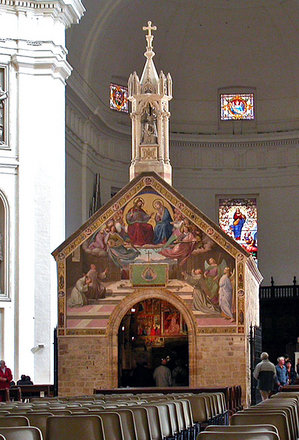 The spiritual tradition of the Franciscans is
connecting the with the good work of the sainted founder, Saint Francis, who as
you know, fixed three chapels: the third was called the Portiuncula (the Little
Portion), dedicated to Saint Mary of the Angels. As you can see, the chapel
sits in a large basilica in Assisi. The friars have been at the Portiuncula
since early thirteen century. SaintClare made her vows following Palm Sunday in
1212 and where Francis died on 3 October 1226.
The spiritual tradition of the Franciscans is
connecting the with the good work of the sainted founder, Saint Francis, who as
you know, fixed three chapels: the third was called the Portiuncula (the Little
Portion), dedicated to Saint Mary of the Angels. As you can see, the chapel
sits in a large basilica in Assisi. The friars have been at the Portiuncula
since early thirteen century. SaintClare made her vows following Palm Sunday in
1212 and where Francis died on 3 October 1226.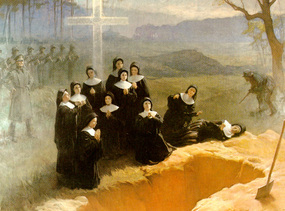 This picture of the Blessed Martyrs of Nowogródek has been imprinted in my mind and heart since I was in grammar school with the Sisters of the Holy Family of Nazareth. How could one be not moved by the death of these women?
This picture of the Blessed Martyrs of Nowogródek has been imprinted in my mind and heart since I was in grammar school with the Sisters of the Holy Family of Nazareth. How could one be not moved by the death of these women?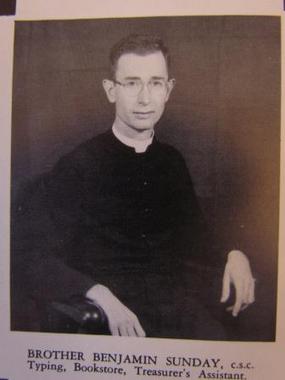
Notre Dame High School (West Haven, CT) legend and friend to all Brother Benjamin Sunday, C.S.C., recently celebrated his birthday!
In true Brother Benjamin style, he wouldn't tell us what day nor how old he is, but we wanted to wish him a happy birthday publically nonetheless! But he can't be more than 55.
To view a photo album of Brother Benjamin pictures through the years, please visit the ND photo album page .
Happy Birthday and abundant blessings, Brother Benjamin!
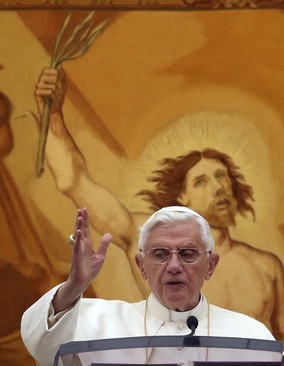 How often do we take seriously the Lord's teaching that we ought to pray (and care for) our enemies? Likely, not often. We allowed our emotions and prejudices and our hurt to get in the way of loving those who oppose even in a small way. It's been said, "Our simple and profound life, in which every moment of
the day is offered to God, helps them find purpose in their often difficult
life behind bars." Pope Benedict's intentions for August draw us closer to what the Lord wants. Let's join him and the Church in prayer for the human dignity of those in jail.
How often do we take seriously the Lord's teaching that we ought to pray (and care for) our enemies? Likely, not often. We allowed our emotions and prejudices and our hurt to get in the way of loving those who oppose even in a small way. It's been said, "Our simple and profound life, in which every moment of
the day is offered to God, helps them find purpose in their often difficult
life behind bars." Pope Benedict's intentions for August draw us closer to what the Lord wants. Let's join him and the Church in prayer for the human dignity of those in jail.